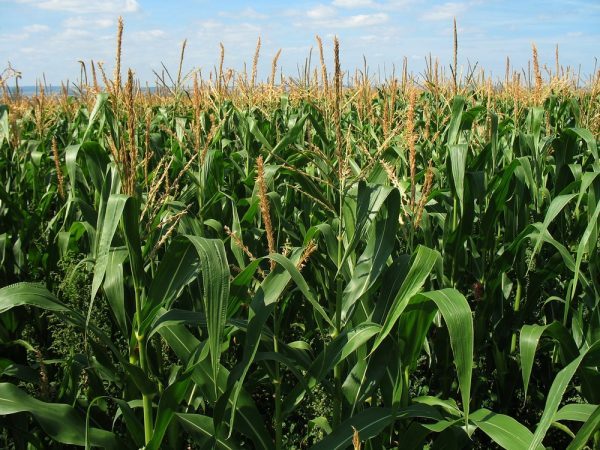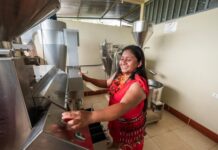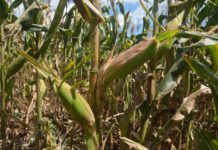Nearly 60% of Africa’s population doesn’t utilize a bank because it is out of their reach.
As International Day of Banks approaches on Dec. 4, a unique partnership in Kasasa, Uganda, is helping community members, including farmers, gain access to banking services, a majority of which participate in the agricultural economy.
The InteRoots Initiative, a Denver, United States-based nonprofit, has partnered with the community of Kasasa to create the Tat Sat Community Academy (TaSCA), a school and cultural institution integrated with financial literacy programming and services.
While the school won’t open until next year, the Tat Sat Community Savings and Credit Co-Operative Society (TaSSCOS) is set to begin operations before the end of 2021. The Co-Operative is community-owned, and among other services will facilitate access to the banking system — often acting as a liaison between members and larger urban banks. By pooling the risk and resources of the community at large – or smaller groups within the community (there currently exists a women’s business guild, for example) – it makes financing viable from the perspective of larger financial institutions. This approach has seen success in other rural communities globally.
Mrs. Namayega Agnes is a TaSCA Kasasa Community Board member and farmer. She is married with four children and excited about the possibilities the co-operative will have on the community, particularly the effect it will have on women and girls.
“Women and children have not been given an equal chance to financial progress and development,” she said, adding that the co-operative will change that, “You cannot imagine how much help this is to our community! When a genuine community program like this, with absolutely no strings attached, develops here, you can be sure we will give it our all.”
Community farmers are interested in investing in a mill through the cooperative, which will be used to process produce locally instead of having to outsource at a high cost. It will also provide locally sourced food for the students and staff. Beyond offering financial services to local entrepreneurs and families, the co-operative will work hand in hand with the school and community at large to provide financial literacy programming and educational opportunities relating to business and finance.
In another approach to making TaSCA sustainable, community members have devised an idea for the Graduate Enterprise Fund. Every time a student pays tuition, a majority of the funds goes into a fund that will be used to help students pursue their dreams post-graduation. These set-aside funds will be used directly for students who apply to use them for furthering their goals, like starting a business or furthering their education. If the plan is approved by a community board overseen by the co-operative, the student will receive direct financial support – an estimated one to two years of stability – in pursuing their dreams beyond graduation.
“The finance model the community of Kasasa has developed through TaSSCOS allows for continuing investments in individuals, institutions, and infrastructure. It connects existing economic and social sectors – both formal and informal – with financial tools and resources otherwise difficult to access in this context. The vision is truly innovative, and has the potential to serve as a model for other similar initiatives across the globe,” said M. Scott Frank, executive director of The InteRoots Initiative.








